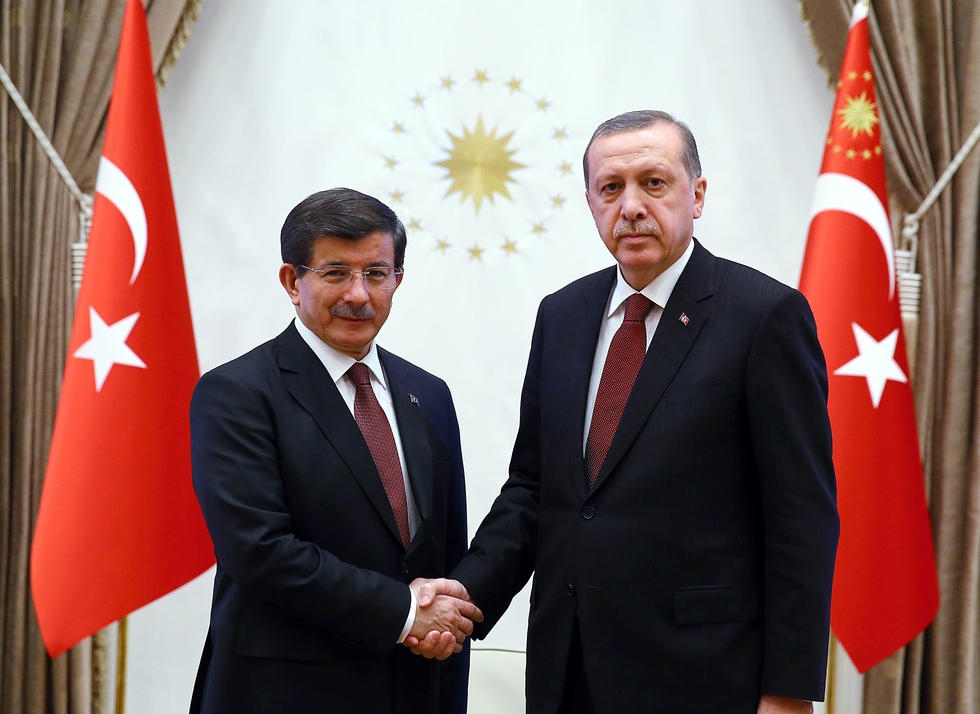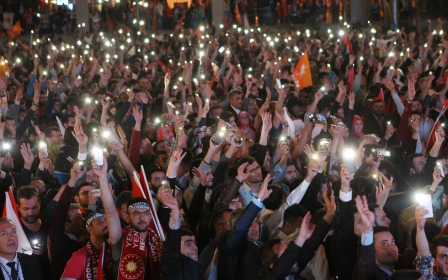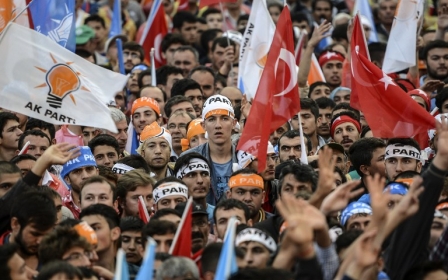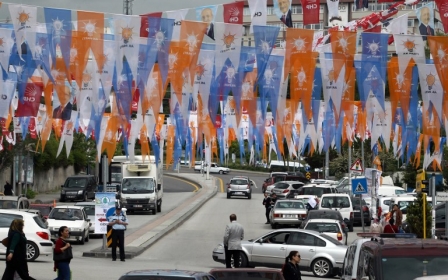Turkey's AKP open to all parties for coalition

Turkish Prime Minister Ahmet Davutoglu has said the ruling Justice and Development Party (AKP) Party is open to negotiate coalition possibilities with the other three parties with seats in the parliament.
Speaking at an iftar event in Istanbul on Sunday hosted by the state-owned poorhouse organisation Darulaceze, Davutoglu said he would speak with the three opposition leaders once President Recep Tayyip Erdogan presents to him the task of forming a government, as the leader of the party with the highest number of seats.
The 7 June general election produced no single-party majority, necessitating a coalition.
Davutoglu emphasised that the AKP, which has ruled the country for more than a decade, would do its best to form a government to manage the country effectively and in good faith.
"Our doors are not closed to anybody; our mind is not closed, our ears are not closed, our heart is not closed," he said in an emphatic statement.
The prime minister said he interpreted some of the statements from other leaders regarding possible coalition formulae as "testing the waters".
He said real stances would become clear in official negotiations, in a particular reference to a recently floated right-centre-left coalition proposal.
Earlier in the week, Devlet Bahceli, leader of the Nationalist Movement Party (MHP), rejected an offer by Kemal Kilicdaroglu, head of the Republican People’s Party (CHP), to make him the prime minister of an MHP-CHP coalition government.
According to the official results of the general election, the AKP has 258 MPs elected to the Turkish parliament.
The main opposition CHP has 132 seats, followed by the MHP and the pro-Kurdish Peoples' Democratic Party (HDP) each with 80.
In order to form a government, any coalition needs to have 276 MPs' support - a simple majority in a 550-seated parliament.
Erdogan repeats call for government
Meanwhile, Erdogan on Sunday reiterated his call to political parties to form a government "as soon as possible".
"Turkey can fortify its security and stability with a coalition government formed on the basis of a common language, common targets and a common mind," said Erdogan.
Erdogan warned the parties and politicians against acting like "wet blankets" by highlighting differences instead of commonalities, saying those who do must have an explanation to the public.
"No one has the right to use their position within the post-election framework in an attempt to gridlock the system, rather than undertaking responsibility before the nation," Erdogan said.
"It is a heavy liability to make Turkey look like a country where a government cannot be formed."
Erdogan urged parties to put their egos aside and cooperate.
"If politicians fail to resolve this issue, the sole reference point to resolve it is the nation," he said, referring to the possibility of a new elections if a government does not take shape within 45 days of the president’s demand.
In his remarks, Erdogan also slammed those who called on him to act in accordance with the constitution.
"I know my position within the constitution; I spent 40 years of my life acting in accordance with the constitution. Whatever duty or authority the constitution grants me, I know how to use this power very well. I do not need instructions from anyone," he said.
The newly elected lawmakers will be sworn in on Tuesday, after which Erdogan will ask the AKP - still the biggest party in parliament - to form a coalition government within 45 days.
New MEE newsletter: Jerusalem Dispatch
Sign up to get the latest insights and analysis on Israel-Palestine, alongside Turkey Unpacked and other MEE newsletters
Middle East Eye delivers independent and unrivalled coverage and analysis of the Middle East, North Africa and beyond. To learn more about republishing this content and the associated fees, please fill out this form. More about MEE can be found here.




